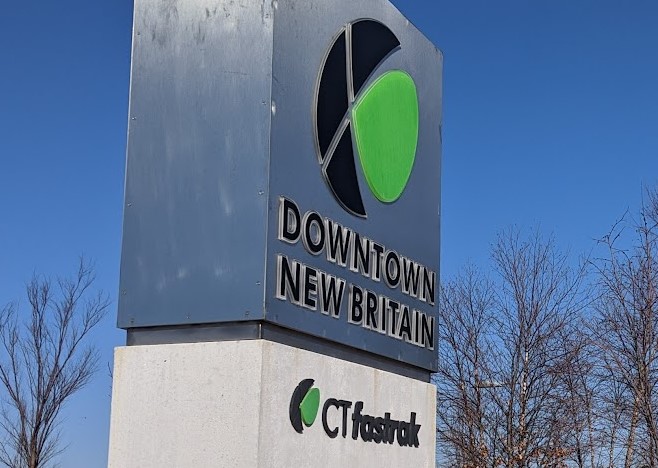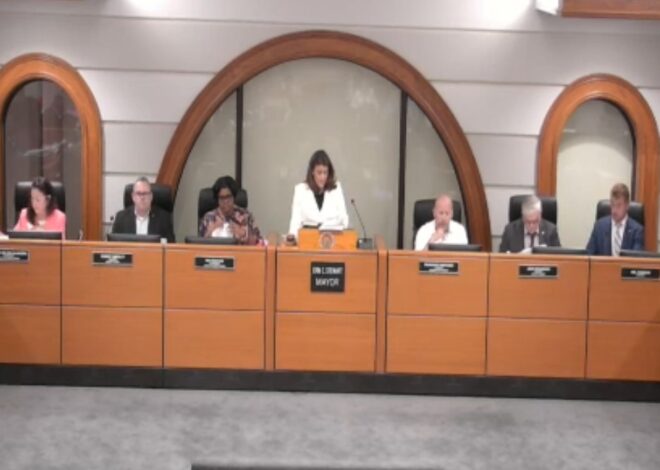New Britain’s Congressional Delegate Votes Front-And-Center at Democrats’ Hearing
The State Democratic Party held a hearing by a five member panel appointed to consider challenges to the outcome of the Democratic Fifth District Congressional Convention. The proceedings were in response to official complaints at the request of the NAACP and by the Mayor of Waterbury.

The convention had resulted in Democratic party endorsement for former Simsbury First Selectman Mary Glassman, while Waterbury educator Jahana Hayes and New Britain Ald. Manny Sanchez (D-AL) qualified to primary for the party nomination. Sanchez has since decided not to proceed with a primary challenge.
A challenge to the reported final vote of the New Britain delegation at the convention was front and center in the hearing.
When the votes were initially declared in the second ballot of voting at the convention, according to CTMirror, Hayes appeared to have enough votes to win the convention, at least by one vote. New Britain’s delegates were split, with twenty-six voting in favor Glassman and eleven delegates voting for Hayes.

But before the vote was declared as final, three New Britain delegates apparently switched from supporting Hayes to Glassman, and when the balloting closed, Glassman had the majority vote to win the endorsement.
Vote switching at nominating conventions is a common part of the Democratic party’s process in Connecticut. What occurs is that, after each city and town’s delegate votes are declared, the chair of the convention holds off for a time in announcing the vote as final. During this time, delegates are invited to change their votes, if they choose, and changed votes are announced by delegates’ local party chairs. It is a process that is widely supported, because it allows discussion between delegates before final decisions are made.
But the process by which this occurred at the Democrats’ Fifth District Congressional Convention has been the focus of controversy, with many charging that it appeared unfairly tilted in favor Glassman because she is a white candidate.

Connecticut NAACP President Scot Esdaile reminded the panel of the long history of voter suppression against African Americans in the United States, as he asked the panel to review the results of the convention. He also reminded the panel of the history of overwhelming votes for Democratic candidates from African Americans, asking the Democratic Party, “that represents democracy, to make sure that civil rights are not being violated.”
Esdaile was joined by other NAACP leaders at the hearing, including New Britain NAACP President Ronald P. Davis.
Mayor Neil O’Leary (D) of Waterbury said that the rules governing the convention require that any delegate switching their vote to sign a form documenting their changed vote. He said that, though New Britain Democratic Party Chair William Shortell announced that three New Britain delegates had changed from voting for Hayes to voting for Glassman, only one switched vote was actually identified by a form signed by a delegate.
O’Leary also said that the length of time that the vote was held open at the convention was excessively long, approximately forty minutes. He said that the votes were held open while Hayes had the majority vote, and were immediately closed after Glassman had the majority of delegates in her favor.
Shortell was present at the hearing, as well, with two New Britain delegates who identified themselves as being the two who switched from voting for Hayes to voting for Glassman.
Shortell said that, after one delegate changed his vote from Hayes to Glassman, he turned in the vote change form to convention officials. He said that the reason that the other two delegates who switched their votes were not on the form was that he was not able to get the form back to get the signatures of those two delegates when they, later, changed their votes.
After considerable questioning and discussion, the panel concluded the hearing, with party officials saying that a decision would be announced in three business days.

It was not immediately clear what the panel might consider doing, if it does agree with the complaints.
The vote tally reported at the convention apparently had Glassman ahead by six votes. If the panel decides that the two New Britain votes in question should be recorded for Hayes rather than Glassman, that would drop Glassman’s total by two votes and increase Hayes’ by two, for a net change of four. But that would still leave Hayes two votes behind.
The panel might also disagree that any action should be taken. A representative of Glassman’s campaign said that concerns about the convention process should have been bought up at the convention. itself, and addressed by the delegates.
Esdaile said that the only way to remedy problems from the convention would be redo the process with a new convention.
The decision from the panel is expected by June 12th.



